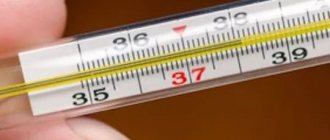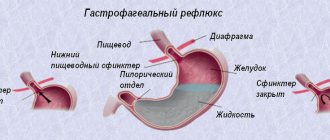A single case of dry mouth is not a reason to panic, but if the discomfort bothers you over a long period of time and there are other warning signs, you should immediately consult a doctor.
Insufficient functioning of the salivary glands causes xerostomia - a feeling of dryness in the mouth, including the tongue. This manifestation can occur in various pathological and physiological conditions of the body, and can also be caused by a number of provoking factors.
Why is normal salivation so important?
Normal salivation is one of the key components of oral health. This is due to the fact that saliva performs a number of extremely important functions.
First of all, saliva helps protect the oral mucosa from ulcers and wounds that would otherwise occur during the process of chewing food. Saliva also neutralizes acids and bacteria that enter the oral cavity and helps dissolve taste irritants.
In addition, saliva takes part in the process of food digestion and is one of the protective factors that plays an important role in the process of remineralization of teeth.
Dehydration
The body intensively loses fluid during physical activity. In addition, dry mouth occurs when exposed to the sun for a long time or in a room with an unfavorable microclimate (for example, when the air in the room is dried out by electric heating devices).
Source: depositphotos.com
Why is xerostomia dangerous?
Poor saliva production, leading to a feeling of dry mouth, is a serious problem. There can be a huge number of reasons for it, as well as solutions. Be that as it may, in medicine this phenomenon is called xerostomia and, as evidence shows, it is more often diagnosed in women than in the stronger sex.
The one-time feeling of dry mouth is indeed most likely caused by some subjective factors: thirst, uncomfortable temperature conditions, errors in the diet. However, if “Sugar” occurs regularly in the mouth, it is still not worth fighting the discomfort solely by drinking more fluids. Insufficient salivation in this case may indicate serious problems in the body, especially if it is accompanied by other symptoms.
So, you should be wary of the “stickiness” of saliva, a strange sensation that if you keep your mouth closed for a long time, your tongue seems to stick to the roof of your mouth. Dry mouth, accompanied by burning and itching, roughness of the tongue and redness, is also a cause for concern. A doctor should be consulted if a person, in addition to dryness of the oral mucosa, complains of problems with the perception of taste, swallowing or chewing. In this case, it is not recommended to delay medical consultation.
Note that dry mouth is not as harmless as it might seem. For example, it significantly increases the risk of developing gingivitis and stomatitis and can lead to dysbiosis of the oral cavity.
To date, experts cannot offer us a detailed classification and a complete list of possible causes of dry mouth. Nevertheless, doctors conventionally divide all causes of dryness of the oral mucosa into pathological and non-pathological.
The first group of reasons indicates a disease that requires therapy. As for non-pathological reasons, they are associated primarily with a person’s lifestyle.
Xerostomia: symptoms of the disease
Patient complaints - patients with xerostomia most often complain of constant dryness of the mouth and lips, burning of the tongue and oral mucosa, bitterness in the mouth, as well as the fact that they are constantly thirsty, bad breath, uncomfortable chewing and swallowing food , disturbance of the sense of taste and smell.
In patients with removable dentures, complaints are added about the inability to use dentures due to severe pain. Some patients also complain of problems with diction and a persistent cough.
When examining the oral cavity -
- dry lips,
- pale or bright red thinned mucous membrane,
- lack of saliva in the mouth (or a small amount of foamy saliva),
- dry folded tongue with atrophied filiform papillae,
- the tongue is covered with a white coating,
- there is an unpleasant odor from the mouth.
Also, when examining the entire oral cavity, as a rule, the following are visualized: abundant microbial plaque on the teeth, fungal infection of the mucous membrane (oral candidiasis), various erosions and ulcers, poorly healing traumatic injuries, multiple caries and inflammation of the gums. All this is associated with reduced local immunity of the oral mucosa, as well as with a large amount of pathogenic microflora.
Pathological causes of dry mouth
The feeling of dry mouth can be associated with serious pathologies in the body. For some of them, xerostomia is one of the main symptoms, for others it is only a concomitant manifestation. At the same time, it is impossible to list absolutely all diseases without exception that can cause problems with salivation. Therefore, in this article we will only talk about those for which dry mouth is one of the key signs.
Pathologies of the salivary glands
The most common problem of the salivary glands is their inflammation. This may be mumps (inflammation of the parotid gland) or sialadenitis (inflammation of any other salivary gland).
Sialadenitis can be an independent disease or develop as a complication or manifestation of another pathology. The inflammatory process can involve one gland, two symmetrically located glands, or multiple lesions are possible.
Sialadenitis develops, as a rule, as a result of infection, which can enter the gland through the ducts, lymph or blood. Non-infectious sialadenitis can develop due to poisoning with salts of heavy metals.
Inflammation of the salivary gland is manifested by pain that radiates to the ear from the affected side, difficulty swallowing, a sharp decrease in salivation and, as a result, dry mouth. Upon palpation, local swelling can be detected in the area of the salivary gland.
Treatment is prescribed by a doctor. Most often, therapy includes antiviral or antibacterial drugs; novocaine blockades, massage, and physiotherapy can be used.
Infectious diseases
Few people thought that dry mouth could be one of the signs of the onset of influenza, sore throat or acute respiratory viral infection. These diseases are accompanied by increased body temperature and excessive sweating. If the patient does not replenish fluid in the body sufficiently, he may experience dry mouth.
Endocrine diseases
Insufficient salivation may also indicate endocrine disruption. Thus, many patients who have been diagnosed with diabetes complain of a constant “Sahara desert” in the mouth, combined with severe thirst and increased urination.
The cause of the above symptoms is high blood glucose levels. Its excess provokes dehydration of the body, which manifests itself, among other things, in xerostomia.
To alleviate the symptoms of the disease, it is imperative to resort to complex treatment. Sugar levels should be carefully monitored using a glucometer, and you should also follow the schedule of taking medications prescribed by your endocrinologist. Fluid intake plays a special role. You should drink decoctions and infusions of medicinal herbs, which help lower glucose levels and increase body tone.
Salivary gland injuries
Xerostomia can occur with traumatic disorders of the sublingual, parotid or submandibular glands. This kind of injury can provoke the formation of tears in the gland, which can lead to a decrease in salivation.
Sjögren's syndrome
Sjogren's syndrome or disease is a disease that is manifested by the so-called triad of symptoms: dryness and a feeling of “sand” in the eyes, xerostomia and some kind of autoimmune disease.
This pathology can occur in people of different ages, but more than 90% of patients are representatives of the fairer sex of the middle and elderly age group.
To date, doctors have not been able to find out either the causes of this pathology or the mechanisms of its occurrence. Researchers suggest that an autoimmune factor plays a major role. Genetic predisposition is also important, since Sjogren's syndrome is often diagnosed in close relatives. Be that as it may, a malfunction occurs in the body, as a result of which the lacrimal and salivary glands are infiltrated by B and T lymphocytes.
In the early stages of the disease, dry mouth appears periodically. As the disease progresses, the discomfort becomes almost constant and intensifies with excitement and prolonged conversation. Dryness of the oral mucosa in Sjögren's syndrome is also accompanied by burning and soreness of the lips, a hoarse voice and rapidly progressing caries.
Cracks may appear in the corners of the mouth, and the submandibular or parotid salivary glands may become enlarged.
Dehydration
Since saliva is a type of body fluid, insufficient saliva production can be caused by excessive loss of other fluids. For example, the oral mucosa can dry out due to acute diarrhea, vomiting, internal and external bleeding, burns, and a sharp increase in body temperature.
Gastrointestinal diseases
Dry mouth combined with bitterness, nausea and a white coating on the tongue may indicate a disease of the gastrointestinal tract. These may be signs of biliary dyskinesia, duodenitis, pancreatitis, gastritis and cholecystitis.
In particular, the oral mucosa often dries out at the first manifestations of pancreatitis. This is a highly insidious disease that can develop almost unnoticed over a long period of time. With exacerbation of pancreatitis, flatulence, attacks of pain, and intoxication develop.
Hypotension
Dry mouth combined with dizziness is a common sign of hypotension. In this case, the cause is poor circulation, which affects the condition of all organs and glands.
When blood pressure drops, dry mouth and weakness usually occur in the mornings and evenings. Recommendations for people suffering from hypotension are usually given by therapists; medications will help normalize blood pressure and eliminate dry mouth.
Climax
Dry mouth and eyes, rapid heartbeat and dizziness can be symptoms of menopause in women. A decrease in the production of sex hormones affects the general condition. In particular, during this period all mucous membranes begin to dry out. To stop the manifestation of this symptom, the doctor prescribes a variety of hormonal and non-hormonal drugs, sedatives, vitamins and other medications.
Note that all of the above diseases are serious, and drying out of the oral mucosa is only one of their symptoms. Therefore, self-diagnosis for insufficient salivation is unacceptable. Only a specialist can determine the true cause of xerostomia after a series of diagnostic procedures.
Causes
Natural age-related changes
Dry mouth in the morning, at night and throughout the day is normal in older people. Since with age, the activity of the salivary glands decreases . This is an inevitable consequence of the aging of the body.
Taking medications
The causes of dry mouth are not always associated with some disease or old age. Often this problem is caused by taking medications. Saliva production is especially strongly affected by:
- antidepressants and anti-anxiety drugs;
- antihypertensive drugs;
- antihistamines;
- countercurrent agents;
- muscle relaxants;
- painkillers;
- drugs used to treat Alzheimer's disease;
- methamphetamine.
Activities and medications used to treat cancer can also cause persistent dry mouth. Sometimes, after completing a course of chemotherapy or radiotherapy, saliva production returns to normal, but sometimes the problem of dryness remains forever.
Diseases
Problems with saliva production can occur due to damage to the nerves that supply the salivary glands due to injury or surgery. And also due to a stroke, when the center of the brain that regulates salivation is affected.
- Diabetes. This disease is characterized not only by dry mouth, but also by constant thirst.
- Fungal infections of the oral cavity.
- Alzheimer's disease.
- Sjögren's syndrome.
- HIV AIDS.
- Osteoporosis, especially in women during menopause.
- Gallbladder problems. Including ordinary dyskinesia of the biliary tract. In this case, dry mouth usually complements the bitterness.
- Like burping rotten eggs, dry mouth can be caused by acid reflux.
Often the problem with salivation occurs due to nervousness. She is a character for anxious, suspicious people, those who suffer from VSD. Moreover, in this case, a decrease in saliva production can be caused by both the use of anti-anxiety medications and increased mouth breathing, dehydration, acid reflux - that is, all those conditions that are characteristic of people who are in constant anxiety.
Mouth breathing is a common cause of dry mouth. And it is typical not only for anxious people, but also for those who suffer from chronic rhinitis, snore or play intense sports. All these people are at risk of decreased salivation.
Tobacco and alcohol
The cause of constant dryness and bitterness in the mouth is often tobacco smoking. And also drinking alcohol. Moreover, alcohol does not have to be introduced into the body in the form of alcoholic beverages. Often, prolonged use of mouth rinses containing alcohol leads to a decrease in salivation and drying of the oral mucous membranes.
Non-pathological causes of dry mouth
Non-pathological causes of dry mouth are most often associated with the lifestyle a person leads:
- Xerostomia can be a sign of dehydration. Its cause in this case is a violation of the drinking regime. Most often, the oral mucosa dries out if a person drinks insufficient amounts of water at high ambient temperatures. In this case, the problem is very simple to solve - just drink plenty of fluids. Otherwise, serious consequences may occur.
- Tobacco smoking and drinking alcoholic beverages are another possible cause of dry mouth. Many people are familiar with the unpleasant sensations in the oral cavity that appear the morning after a feast.
- Xerostomia can result from the use of a number of medications. Thus, dry mouth is a side effect of psychotropic drugs, diuretics and antitumor drugs. Also, problems with salivation can be caused by drugs to lower blood pressure and antihistamines. As a rule, such an effect should not become a reason to completely stop taking the medication. The feeling of dryness should completely disappear after treatment is completed.
- The oral mucosa can dry out when breathing through the mouth due to impaired nasal breathing. In this case, it is also recommended to drink more fluids and use vasoconstrictor drops to get rid of a runny nose as soon as possible.
Reasons for appearance
And although the disease can affect children or adults, most often it affects people in old age. This is due to the fact that the salivary glands secrete a little fluid, which may cause discomfort in the mouth. In addition, insufficient moisture in the oral cavity can cause wounds, microcracks, as well as the formation and development of inflammatory processes.
So why does your mouth get dry? Besides age, there are other factors:
- Mouth breathing. If a person has a chronic runny nose, he often breathes only through his mouth at night. As a result, all moisture from the oral cavity will disappear. Therefore, if you go to bed with a stuffy nose, you shouldn’t be surprised why your mouth gets dry at night. It is almost impossible to get rid of dry mucous membranes when breathing through the mouth.
- Medicines. If a person takes various medications (antidepressants, diuretics, pills to lower blood pressure) that can cause dry mouth, then there is nothing surprising in such a phenomenon. Dryness can also occur in people who take non-steroidal anti-inflammatory drugs. This is a very common side effect.
- Autoimmune diseases. Patients who have Sjögren's disease or lupus may have problems with salivation.
- Diabetes. If patients complain of constant dry mouth, their blood is often taken to determine the presence of sugar in its composition. Diabetes mellitus is often confirmed. A characteristic symptom of diabetes mellitus is also frequent urination.
Some patients wonder why their mouth gets dry during sex. However, this phenomenon is unlikely to be caused by disease. Most often it is explained by intense breathing through the mouth or prolonged lying on the back.
In rare cases, the following diseases may be the cause of a dry mouth:
- Dehydration.
- An infection that affects the salivary glands.
- Problems during pregnancy due to hormonal reasons.
- Problems with appetite (anorexia, bulimia).
- Intensive use of mouth rinses containing alcohol.
- Blockage of the salivary gland with a stone.
Dry mouth during pregnancy
Often xerostomia occurs in women in an “interesting” position. In them, a similar condition, as a rule, manifests itself in later stages and has several causes.
The three main reasons for dryness of the oral mucosa in pregnant women are increased sweating, increased urination and increased physical activity. In this case, xerostomia is compensated by drinking more.
Also, dry mouth can occur due to a lack of potassium or an excess of magnesium. If tests confirm an imbalance of microelements, appropriate therapy will come to the rescue.
Sometimes pregnant women complain of dry mouth combined with a metallic taste. Similar symptoms are typical for gestational diabetes. This disease is also called “diabetes mellitus in pregnancy.” The cause of gestational diabetes is the reduced sensitivity of cells to their own insulin, triggered by changes in hormonal levels during pregnancy. This is a serious condition that should prompt tests to determine the exact level of glucose in your blood.
Symptoms
Lack of saliva manifests itself in different ways. Moreover, sometimes a person may experience just dryness, supplemented by other symptoms. And sometimes other sensations will prevail. And he doesn’t even immediately realize that he is suffering from insufficient salivation.
Symptoms and signs of dry mouth include:
- feeling of tongue stickiness;
- thick, as if fibrous, saliva;
- halitosis;
- difficulty chewing food;
- problems swallowing bolus (dysphagia);
- problems with speech, especially fast and loud;
- dryness and sore throat;
- hoarseness;
- dryness of the tongue, which becomes rough, often grooves and ulcers appear on it;
- burning in the mouth;
- intolerance to salty, sour and spicy foods;
- problems with wearing dentures;
- chapped lips;
- problems with applying lipstick (it sticks to your teeth all the time);
- inflammatory gum diseases;
- tooth decay.
Many people primarily complain of dry mouth at night or in the morning. It `s naturally. Since during sleep, saliva production always decreases.
Diagnosis of the causes of dry mouth
In order to determine the prerequisites for drying out of the oral mucosa, the specialist will first have to conduct a thorough analysis of the patient’s medical history in order to determine the possible causes of such a symptom. After this, the doctor will order diagnostic tests and examinations that are necessary to confirm or refute the suspected causes of xerostomia.
Diagnosis of the main causes that lead to dryness of the oral mucosa may include a set of studies, the exact list of which depends on the probable pathology.
First of all, if insufficient salivation occurs, it is necessary to find out whether the patient has diseases that impair the functioning of the salivary glands. For this purpose, computed tomography may be prescribed, which will help identify neoplasms, magnetic resonance imaging, as well as a study of the composition of saliva (enzymes, immunoglobulins, micro- and macroelements).
In addition, a biopsy of the salivary glands, sialometry (study of the rate of saliva secretion), and cytological examination are performed. All of these tests will help determine whether the salivary system is functioning correctly.
The patient is also prescribed general urine and blood tests, which can indicate anemia and the presence of inflammatory processes. If diabetes is suspected, a blood glucose test is prescribed. An ultrasound may reveal cysts, tumors, or stones in the salivary gland. If Sjögren's syndrome is suspected, an immunological blood test is performed - a study that helps identify diseases associated with a decrease in the body's resistance and identify infectious diseases.
In addition to the above, the doctor may prescribe other tests depending on the patient’s condition and medical history.
Diseases
The list of ailments that can lead to xerostomia is very wide. It includes:
- ARVI, influenza and other infections accompanied by fever;
- diseases that cause diarrhea and therefore dehydration;
- pathological processes that provoke heavy sweating. These include heart attacks, strokes, arthritis, etc.;
- conditions that worsen the function of the salivary glands (AIDS, cancer);
- inflammatory processes in the salivary glands or surrounding tissues, as a result of which the outflow of saliva is disrupted (the ducts of the glands are blocked);
- head and neck injuries;
- diabetes mellitus (including gestational);
- Alzheimer's disease;
- Sjögren's syndrome (an autoimmune disease, one of the symptoms of which is drying out of all mucous membranes);
- pathologies of the digestive tract (stomach, liver, pancreas).
Dry mouth combined with other symptoms
Often, accompanying symptoms help determine the nature of the pathology that causes decreased salivation. Let's look at the most common of them.
Thus, drying out of the mucous membrane in combination with numbness and burning of the tongue may be a side effect of taking medications or a manifestation of Sjögren's syndrome. In addition, similar symptoms occur during stress.
Drying of the mucous membrane that occurs in the morning after sleep can be a sign of respiratory pathologies - a person breathes through the mouth during sleep because nasal breathing is blocked. Diabetes mellitus is also likely to develop.
Dry mouth at night, combined with restless sleep, may indicate insufficient air humidity in the bedroom, as well as problems with metabolism. You should also review your diet and avoid eating large meals shortly before bedtime.
Insufficient saliva production, combined with frequent urination and thirst, is a reason to check your blood glucose levels - this can be a sign of diabetes.
Drying of the oral mucosa and nausea can be signs of intoxication, a severe decrease in blood sugar levels. Similar symptoms are also characteristic of a concussion.
If your mouth becomes dry after eating, the whole point is due to pathological processes in the salivary glands, which do not make it possible to produce the amount of saliva necessary to digest food. Bitterness in the mouth combined with dryness may indicate dehydration, alcohol and tobacco abuse, and liver problems. Finally, dry mouth combined with dizziness may be a reason to check your blood pressure levels.
Additional symptoms of dry mouth help reduce the likelihood of incorrect diagnosis and also prevent developing pathologies from being missed. That is why, when visiting a doctor, you should describe to him in as much detail as possible all the uncharacteristic sensations that you have recently experienced. This will help make the correct diagnosis and select the correct treatment tactics.
Avoiding alcohol mouthwashes
Alcohol rinses should be avoided in any case - they can cause dry mouth. For hygiene, you can use formulations without irritating elements, for example, based on herbs. One of the popular alcohol-free mouthwashes is Listerine. Even hydrogen peroxide can kill germs in the mouth, but many patients do not like its taste.
If a stone is found in the salivary glands, which is likely to cause dry mouth, then only a dentist can remove it. Some time after the removal of the stone, the inflammatory processes stop, saliva is formed in normal quantities, and the condition of the oral cavity is completely normalized.
Other causes of dryness
You can't just look at dryness alone. It is imperative to pay attention to other signs that sometimes accompany it. Correctly identifying the combination of symptoms with dry mouth can help determine the real cause of its formation.
When dryness is accompanied by general weakness of the body, then one thing can be stated: the causes of the manifestation clearly have a serious origin. Moreover, this is relevant during their constant progression. These people definitely need a comprehensive study. Because, ultimately, even the most dangerous diseases can be identified at the initial stage of their appearance, which serves as a good reason for their treatment.
Weakness, which is combined with dryness , can occur with:
- toxicoses of purulent and cancer origin;
- external intoxication;
- diseases of the peripheral and central nervous system.
Viral and infectious diseases, diseases of the circulatory system (lymphoma, leukemia, anemia) can manifest themselves in the same way. Cancer patients after surgery or aggressive chemotherapy may also feel weakness, which is combined with dryness.
White tongue
Doctors say about the tongue that it is a reflection of the abdominal cavity. And in fact, by the characteristics of the coating on the tongue you can learn a lot about the digestive system. As a rule, these pathologies are combined with dry mouth .
This combination of symptoms may indicate diseases of the intestines, stomach and esophagus. Such diseases include: gastroesophageal reflux disease and reflux esophagitis, gastroduodenitis and gastritis, enterocolitis and colitis, peptic ulcer of the duodenum and stomach. If severe pain in the stomach is combined with a white coating on the tongue and dry mouth, then this is an accurate symptom of a complex disease. These diseases include stone and simple cholecystitis, appendicitis and various types of complications, intestinal obstruction and perforated gastric ulcer, pancreatic necrosis and pancreatitis. In these cases, no improvement should be expected. Treatment must be urgent and may even require surgery.
Bitterness on the lips and in the mouth
Several mechanisms may be to blame for the appearance of bitterness, which is combined with dryness. Firstly, this may be due to dysfunction of the biliary system , and secondly, to disruption of the stomach regarding the evacuation and secretion of hydrochloric acid and gastric juice. In both cases, acidic foods or bile are retained. The result of this stagnation is the absorption of their decomposition products into the blood, which can affect the quantitative and qualitative parameters of saliva.
Bitter substances are also directly deposited on the mucous membranes of the lips and membranes. Symptoms of the disease may include dyskinesia of the biliary system, chronic and acute cholecystitis, gastritis and stomach ulcers, chronic toxic and viral hepatitis, chronic diseases of the pancreas that cause impaired excretion of bile.
The combination of nausea and dryness is common.
As a rule, the reasons for their combination are food poisoning and intestinal infections .
These pathologies can appear even before the full clinical picture appears in the form of vomiting and diarrhea. Also, nausea and dryness often appear as a result of banal overeating or errors in diet. This combination of symptoms cannot be accurately diagnosed. Secondary symptoms such as indigestion and stool disorders and abdominal pain must also be assessed. Only one thing can be determined with certainty - the combination of dryness and nausea indicates problems with the digestive system.
Dizziness
When dizziness is added to dryness, this is always a sign of concern. Since it indicates a breakdown in the automatic mechanisms of regulation of blood circulation in the brain and its involvement in the process. This can be either with an initial brain disease , which is accompanied by dizziness with dryness, or with any other diseases that cause intoxication or dehydration.
In the latter case, the manifestation of an alarming combination of symptoms appears after a direct disruption of brain function, and as a result, the inability to keep the body upright. Moreover, the procedure for normal salivation is disrupted, and this is manifested by dryness. Primary changes in the body that are not related to the brain appear during a decrease in the amount of circulating blood, as a result of which its blood supply decreases. Moreover, those pathological manifestations that occur for secondary brain damage are characteristic.
Frequent urination
Frequent urination and dry mouth raises several concerns. The first of these is kidney disease .
Chronic processes of inflammation of these organs are directly related to water balance, determining the amount of urine output and the feeling of thirst. The second reason is diabetes. The mechanism of the combination of symptoms of frequent urination with dry mouth can be explained in this way. Increased glycemia (high blood sugar) leads to high blood osmotic pressure. As a result, fluid is constantly attracted from the tissues into the vascular system. An increase in the amount of fluid in the blood causes dry mucous membranes and a feeling of thirst, while forcing the kidneys to remove excess fluid from the body.
Dryness during pregnancy
A normal pregnancy is rarely accompanied by severe symptoms. At this time, pregnant women may experience any complaints, but all of them have inconsistent symptoms without disturbing their overall well-being. Periodic dryness during pregnancy is no exception. But when this symptom becomes progressive and prolonged, it is always a signal for alarm. It may indicate a woman’s lack of water and nutrition, or an exacerbation of a chronic disease.
But you need to worry not so much about such conditions as about possible toxicosis. If it appears during the beginning of pregnancy, then it is not very scary. However, late toxicosis (preeclampsia) constantly causes fear for the life of the mother and her child. Therefore, any pregnant woman should know that dry mouth, which is combined with vomiting, nausea, swelling and increased pressure, is the first sign of gestosis. There is no need to expect your body to improve on its own. You should definitely seek help from a doctor .
Since dry mouth can be the first symptom of quite serious diseases, including diabetes, you should not ignore it. If you feel this unpleasant sensation almost all the time and do not see what is causing this disorder, be sure to conduct a detailed examination and determine the factor that provoked it.
Etiology of xerostomia
The feeling of dry mouth is familiar to almost every person. Sometimes this condition appears due to banal thirst in the hot season. The symptom may be temporary, for example, due to long-term use of medications. And sometimes this feeling occurs all the time. In this case, doctors diagnose a dysfunction of the salivary glands.
If saliva stops being produced altogether, this can be fraught with the development of complicated consequences. In addition to this condition, cracks and ulcers appear in the oral cavity, and the mucous membranes become irritated.
In order to promptly determine the cause and cure the disease at an early stage, you need to consult a doctor. First, with such complaints they go to a therapist. You may also need to consult an infectious disease specialist, dentist, gastroenterologist, otolaryngologist, neurologist, etc. As a rule, a comprehensive examination is carried out. If dry mouth is a sign of any illness, a person will experience additional symptoms, including:
- feeling of dryness in the throat;
- constant thirst;
- frequent urination;
- difficulty swallowing;
- cracks in the corners of the mouth;
- dry tongue;
- slurred speech;
- itching in the mouth;
- change in taste;
- unpleasant odor from the mouth;
- hoarseness of voice.
Salivary glands - increased salivation and dry mouth
There are a number of tips to help keep your salivary glands healthy:
First, you need to drink plenty of water. Secondly, you should use chewing gum that does not contain sugar. And thirdly, it is necessary to suck on lollipops, which also do not contain sugar.
In certain cases, your dentist may recommend gargling with artificial saliva. The above drug is sold in spray or liquid form. You do not need a prescription to purchase it, but use it several times a day. However, artificial saliva does not contain proteins, minerals and other necessary elements that are contained in natural salivary fluid. Thus, the above drug will simply be useless for digestion.
Dry mucous membranes during menopause treatment
It is the appendages that synthesize the important female sex hormone estrogen. Do not deny yourself the pleasure of living to the fullest! You can also keep small ice cubes in your mouth and lubricate your lips using a moisturizer or balm. This is an inflammation that results in redness, discharge, and very severe itching. To increase the rate of saliva production, medications such as Prozerin, Thermopsis, and in addition Galantamine, coltsfoot and potassium iodide are prescribed.
The normal functioning of all organ systems depends on what we eat. All fields are required. The procedures must be carried out daily until the dryness goes away.
Why does dry mouth occur during menopause?
Burning and dry mouth during menopause begins to appear when a woman is deficient in these hormones. These substances are not hormones, but their structure is similar to that of estrogen, and they are able to bind to receptors in the body of women, having a similar, only weaker, effect. Therefore, symptoms such as burning, stinging in the eyes, a feeling of sand in the eyes, as well as a dry mouth, dry throat, and stickiness in the corners of the mouth are important signs of autoimmune disorders. Traditional medicine offers treatment for vaginal dryness with douching, healing baths, vegetable oils and herbal decoctions that normalize the body's hormonal balance. Some plants contain special substances, so-called phytoestrogens.
Feeling of dry mouth: causes not related to disease
Dryness of the oral cavity may be caused by an incipient infectious disease. Prolonged thirst, which bothers you at night, can be a symptom of diabetes and other endocrine disorders.
Main causes of dry mouth:
- Diseases of the nose. If the nasal septum is deviated or polyps are present, nasal breathing is difficult. The patient breathes through his mouth, which causes the mucous membrane to dry out. Your throat feels dry and you feel thirsty.
- Taking medications. Some medications have dry mucous membranes as a side effect. Most often, dryness is observed while taking antifungal, antihistamine and sedative medications.
- Infection. Often dry mouth is the first symptom of the onset of acute respiratory viral infection or flu. If you suspect you are sick, rinse your nose immediately. This way you can prevent the development of the disease.
- Endocrine diseases. If you have diabetes or Parkinson's disease, dry mouth is quite common. This is due to improper functioning of the salivary glands, which produce secretions in insufficient quantities.
- Head surgeries. Surgical interventions can disrupt the functioning of the salivary glands or damage the nerves that are responsible for producing secretions.
- Dehydration. With heavy sweating and lacrimation, the glands may produce very little saliva. After drinking water, the amount of saliva increases.
The most common cause of dry mouth is medications. Typically this is:
- antidepressants,
- antiemetics,
- allergy medications,
- neuroleptics,
- anxiolytics.
Other medications that can cause persistent and sometimes severe dry mouth include:
- used in the treatment of Parkinson's disease,
- mucus thinners
- diuretics (diuretics).
Drugs such as marijuana and methamphetamine can also cause a lack of saliva in the mouth. The widespread use of the latter substance has led to an increase in the incidence of caries, which is a result of drying out of the oral cavity.
Chemotherapy
Very often, dry mouth appears after using anticancer drugs. During cancer chemotherapy, severe dry mouth and mouth inflammation occur, but these problems usually disappear after treatment is completed.
Irradiation of the salivary glands during radiation therapy for head and neck tumors often causes significant drying of the mouth. At a radiation dose of 5200 cGy, severe, irreversible dryness appears! Smaller doses may cause transient disturbances.
Dry mouth is a consequence of disease of the salivary glands only when all these glands are affected by the pathological process. This is the case, for example, with congenital underdevelopment of these glands, but this is an extremely rarely diagnosed disease.
Much more often, dysfunction of all salivary glands appears with Sjögren's syndrome. This disease is characterized not only by constant dry mouth in an adult or child, but also by dry eyes. Then there is a feeling of sand under the eyelids, burning of the eyes, and conjunctival hyperemia.
Other systemic diseases that can cause decreased or absent saliva secretion include:
- urolithiasis and acute renal failure,
- hyperthyroidism,
- rheumatoid arthritis,
- systemic lupus erythematosus,
- hypercalcemia,
- scleroderma,
- amyloidosis,
- leprosy,
- sarcoidosis,
- tuberculosis,
- diabetes mellitus (decompensated),
- HIV infection and AIDS.
Dry mouth is not always a diagnosis, much less a frightening one. She may be:
- a symptom of too little water/fluid in the body (you should drink about 2 to 2.5 liters of fluid per day);
- the result of excessive consumption of table salt (according to WHO, daily consumption of this spice should not exceed 5 grams);
- a consequence of smoking;
- Some people experience a feeling of dry mouth and throat during stressful situations;
- a feeling of dry mouth can be triggered by deep breathing through the mouth;
- head and neck injuries can lead to decreased saliva secretion;
- Changes in hormone levels can affect the functioning of the salivary glands, often causing a feeling of dry mouth in women during and after menopause.
There are situations when a person feels a short-term lack of saliva production, this is unpleasant, but not dangerous. You should definitely see a doctor if you experience persistent dry mouth.
This is especially true for diabetes mellitus, which can go unnoticed by the patient in the initial stages, at a time when it is necessary to begin its therapy and compensate for metabolic disorders.
Diabetes mellitus is a disease of the endocrine system that slowly destroys the patient's body. One of its main symptoms is constant dry mouth. The feeling of dry mouth and incessant thirst exhausts a person. He feels constant hunger and a frequent urge to urinate.
A person is thirsty because glucose molecules bind water molecules, thereby causing dehydration. This condition requires therapy, which includes taking medications that lower blood sugar levels. Patients must monitor its amount using special equipment.
How to win
What should a patient do if there is constant dry mouth? The feeling of dry mouth can be caused by various reasons. If they are pathological, then the underlying disease must be treated, otherwise it will be impossible to solve the problem. If a deficiency of saliva occurs due to the patient’s habits, they need to be corrected.
In any case, if unpleasant sensations appear, you need to replenish your water balance as soon as possible and take care to ensure that there is no excessive loss of fluid.
Many people notice at one time or another in their lives that their mouth feels dry. The cause of insufficient salivation can be either minor and easily removable, or serious, requiring treatment of the pathological process.
They lead to dry mouth, which cannot always be eliminated by replenishing the lack of fluid in the body. Each patient needs to be attentive to the sensations in the oral cavity and if there is dryness in it, consult a doctor.
Diagnostics
The patient’s complaint that his mouth is dry should not be ignored. The cause requires diagnosis under the guidance of an experienced doctor. He needs to collect anamnesis and carefully analyze it in order to determine the necessary tests and diagnostic procedures for the patient.
This can be a whole range of measures, depending on the clinical picture:
- Saliva tests and studies of the mechanism of salivation will help determine whether the patient has pathologies of the salivary glands.
- General blood and urine tests will show the doctor what condition the patient’s body is in, whether there is a hidden inflammatory process or anemia.
- Measuring blood glucose and glucose tolerance in a patient is necessary to exclude diabetes.
- Ultrasound of the salivary glands will help determine the presence of tumor processes, stones or neuritis in the salivary glands.
- A serological blood test will show whether a person has Sjögren's disease.
These are the most common tests and studies for problems with salivation. Having studied the clinical picture, the doctor can adjust their list at his discretion, based on the feasibility of their implementation.
Why is it dangerous?
Should a person worry if their mouth is dry? The cause of this phenomenon may be provoked by the presence of a pathological process or not be associated with it, but it must be determined.
There is a rapid growth of pathogenic microbes, which cause gum disease and tooth decay. Some patients experience candidiasis in the oral cavity. People with a deficiency of saliva often have dry and inflamed lips, which often develop cracks.
If a person notices that his mouth is dry, the cause of this phenomenon may be a malfunction of the body, so it is recommended to consult the following specialists:
- The dentist will check the condition of the patient’s teeth and gums, the presence of caries and inflammatory processes in the gums.
- The endocrinologist will check the condition of the thyroid gland and refer you for a blood sugar test so as not to miss the development of diabetes. In case of violations, the drug Novotiral or Tireot may be prescribed.
- An otolaryngologist examines for the presence of respiratory diseases.
- A gastroenterologist will help diagnose gastrointestinal diseases if they are present.
- A cardiologist will check your heart function.
- A neurologist will evaluate the functioning of the patient's nervous system.
The reason for the lack of saliva in a patient is rarely obvious; before the doctor determines it, the patient will need to undergo the necessary tests and examine the body using diagnostic methods recommended by the doctor.
Dry mouth can and should be combated with the help of traditional medicine. This will help get rid of an unpleasant symptom even before a diagnosis is made. Of course, you shouldn’t cancel your doctor’s consultation.
One of the best ways to eliminate the lack of saliva production in the mouth is to rinse with decoctions of blueberries, calamus root, chamomile and sage. They need to be cooked separately, taking 1 tbsp. l. dry raw materials, pour a glass of boiling water and leave for at least half an hour. Next, you need to strain the decoctions and rinse your mouth with them one by one.
The swollen blueberries should then be eaten. At the pharmacy you need to purchase oil made from ripe rose hips and a solution of “Chlorophyllipt”, which also contains oil. We first instill the first remedy into the nose, rest for a quarter of an hour, and then drip the second.
Why does this phenomenon occur?
There may be several reasons why the salivary glands cannot cope with their physiological activity. But a person may experience different levels of need for fluid - from the need to compensate for the missing volume once by drinking a glass of water, to regularly repeating this action throughout the day. The second case indicates the presence of a progressive disease, which is expressed in drying of the oral mucosa.
At the initial stage of the examination, the specialist finds out at what time of day xerostomia develops, since this is of decisive importance for making an accurate diagnosis and identifying predisposing factors. It is also important for the doctor to understand whether the discomfort is temporary or permanent. If the dryness of the oral mucosa practically does not go away even after drinking water, but only reduces the intensity of its manifestation, the symptom, being in combination with other signs, indicates a progressive process of one of the rather serious pathologies:
- Ÿ endocrine disorders – more often – insulin-dependent diabetes mellitus;
- Ÿ HIV/AIDS;
- Ÿ iron deficiency anemia;
- Ÿ Alzheimer's or Parkinson's disease;
- Ÿ suffered a mini-stroke or an incipient stroke;
- Ÿ rheumatoid arthritis;
- Ÿ hypotension.
Read also: Sanitation of the oral cavity is
Consultation with an endocrinologist is necessary when xerostomia is expressed not only in the form of thirst. It is important to pay attention to the presence of such phenomena as sudden, unjustified loss of body weight; increased frequency of the urge to urinate; sleep disturbance; the formation of pustular elements in the corners of the mouth, weakening of the general condition, systematic rashes on the skin. When combined, these signs indicate the development of insulin-dependent diabetes mellitus.
Injuries from careless dental procedures, traumatic brain injury, or other surgical interventions can also have a drying effect on the mouth. The main reason is damage to the salivary glands.
In addition to xerostomia, one of the complications of the normal functioning of the salivary glands is a decrease in the immune abilities of the mucous membrane, which increases the likelihood of soft tissue infection: from stomatitis to tonsillitis.
Which specialist should I contact if I have dry mouth?
First of all, a therapist will help to establish the cause of this symptom, who will give a referral either to an infectious disease specialist, or to a dentist, neurologist, otolaryngologist, gastroenterologist, who will make an accurate diagnosis.
As a rule, dry mouth is not a single symptom; it always appears in combination with other signs or disorders. Therefore, most often a person is bothered by the following symptoms:
- Frequent urination, thirst;
- Dry nose and throat;
- Dryness makes it difficult to swallow and your throat may hurt;
- Cracks appear in the corners of the mouth, a bright border of the lips;
- Dry mouth causes slurred speech;
- The tongue becomes dry and burning, it becomes hard, red, and itchy;
- The taste of drinks and food changes;
- There is a foul odor from the mouth;
- The voice may become hoarse. What to do if such a symptom appears? What disease is dry mouth a sign of?
Causes of vaginal dryness during menopause
Dry mouth is caused by pickles, pickled and spicy foods, alcoholic drinks, smoking, and drinking large amounts of coffee. The causes of dryness in the intimate area vary from woman to woman. Women usually notice a metallic or salty taste. Signs of menopause are mitigated by practicing Bodyflex, breathing exercises or yoga, with a balanced diet and proper rest.
Medicines Tablets for menopause. Because of this, the patient feels a pressing pain in the head, why take hormonal drugs that seem to burn. This symptom is also caused by a decrease in estrogen levels in the body.
They can be in tablets, providing a complex effect on the body, as well as local action. The neoplasm compresses the tissues and vessels of the head, which disrupts the flow of blood, as a result of which the patient feels periodic hot flashes. It is also necessary to avoid highly refrigerated foods, such as frozen food and cold drinks. This is one of the causes of insomnia. It is rightfully considered one of the most difficult stages of life.
They are used during sexual intercourse to relieve discomfort and perfectly compensate for the deficiency of their own mucous mass. In case of poisoning with vomiting and loose stools, a person loses a lot of fluid, which also causes xerostomia. Excessive muscle tension in the back, shoulders or neck can cause problems with circulation and may also cause headaches. To maintain health, it is important for a woman during menopause to switch to a healthy diet. Accordingly, a lack of estrogen leads to dysregulation and periodic ebb and flow of blood from the head.
Dryness around the mouth is a symptom of cheilitis
This is a disease of the red border of the lips, which begins with dryness and peeling of the lower lip, then the corners of the lips crack, erosions and jams appear. A person can determine cheilitis on their own - between the mucous membrane and the border of the lips, the outlets of the salivary glands increase. Licking your lips only aggravates the situation, and a chronic inflammatory process can lead to the appearance of malignant formations. When treating this disease, it is necessary to reduce saliva production.
ONLINE TESTS
To determine the underlying cause, it is necessary to undergo a complete examination. Add a comment Cancel reply Your e-mail will not be published. Sleep becomes shorter, more sensitive, and the body gradually adapts to this regime. It’s very possible that it was due to nervousness; just before that, she had difficulties both at work and at home with her son and the housing issue.
Due to a slow metabolism, healing also slows down. We will look at some diseases in which dry mouth may be combined with some other symptoms. You can purchase the raw material in dried form at the pharmacy. If a person is bothered by normal thirst, then the problem can be eliminated by simply replenishing the lack of fluid.
These symptoms also appear in... To do this, it is worth performing the movements that a person makes when rinsing the mouth. The immune system needs external support. Drying of the mucous membrane can be caused by external factors and is easily eliminated by changing the microclimate or taking fluids.
Dry mouth at night and in the morning after waking up most often occurs due to dysfunction of the respiratory system. In addition, dysfunction of the salivary glands can be caused by traumatic dental procedures and other interventions in the mouth and nasopharynx. Dry mouth during sleep can also be caused by eating too much dinner, strong tea and sweets before bed. Moisturizers can also help reduce pain during sexual intercourse and vaginal dryness. But there are statistics that point to averages.
Colorless feces in most cases of its appearance can be considered a rather alarming symptom. It is necessary to give up alcohol, reduce consumption or give up coffee, canned foods, spicy, fatty, salty foods, and marinades. A much more dangerous cause of suppression of salivary secretion is radiotherapy used to treat malignant diseases of the cervicofacial region, upper respiratory tract and digestive tract.
Why does dryness and bitterness appear in the mouth, white and yellow coating on the tongue?
The presence of dry mouth in combination with bitterness, a yellow or white coating on the tongue, heartburn, and belching indicates diseases of the gastrointestinal tract. As a rule, these are symptoms of such diseases:
- Diseases of the gallbladder and dyskinesia of the bile ducts. But it is possible that these signs may be in combination with pancreatitis, duodenitis, cholecystitis, as well as gastritis.
- Dryness and bitterness in the mouth may be due to gum inflammation. Very often these symptoms are accompanied by burning of the gums, tongue, and a metallic taste in the mouth.
- For neurotic disorders - psychoses, neuroses, as well as amenorrhea.
- If dry mouth and bitterness are accompanied by pain in the right side, this is a sign of cholelithiasis or cholecystitis.
- The use of antihistamines and antibiotics leads to a combination of dry mouth and bitterness.
- With thyroid diseases, the motor function of the biliary tract changes, the release of adrenaline increases and the bile ducts spasm. This is why dryness and bitterness in the mouth and burning of the tongue may appear.
- Nausea and dry mouth occur with gastritis of the stomach, the symptoms of which include pain in the epigastric region, a feeling of fullness in the stomach, and heartburn. Gastritis is often caused by the bacterium Helicobacter pylori.
Xerostomia during pregnancy
With a normal drinking regimen, dry mouth should not occur during pregnancy, since, on the contrary, saliva production increases in pregnant women. But given the natural hot air in the summer, this symptom can cause increased sweating.
It's a different matter if a pregnant woman's dry mouth is accompanied by a metallic and acidic taste - this may indicate gestational diabetes (it should be treated with fobrinol). In this case, the pregnant woman must undergo a blood glucose test and a glucose tolerance test.
Due to the pressure of the fetus on the bladder, pregnant women urinate very frequently. In this situation, dry mouth is explained by the removal of fluid from the body - the need for it increases, but replenishment does not occur. Therefore, pregnant women should drink enough fluids.
In addition, it is recommended to exclude sweet, salty and spicy foods from the diet, all that leads to disruption of water-salt metabolism.
Xerostomia during pregnancy can be caused by an excess of magnesium and a severe deficiency of potassium.











